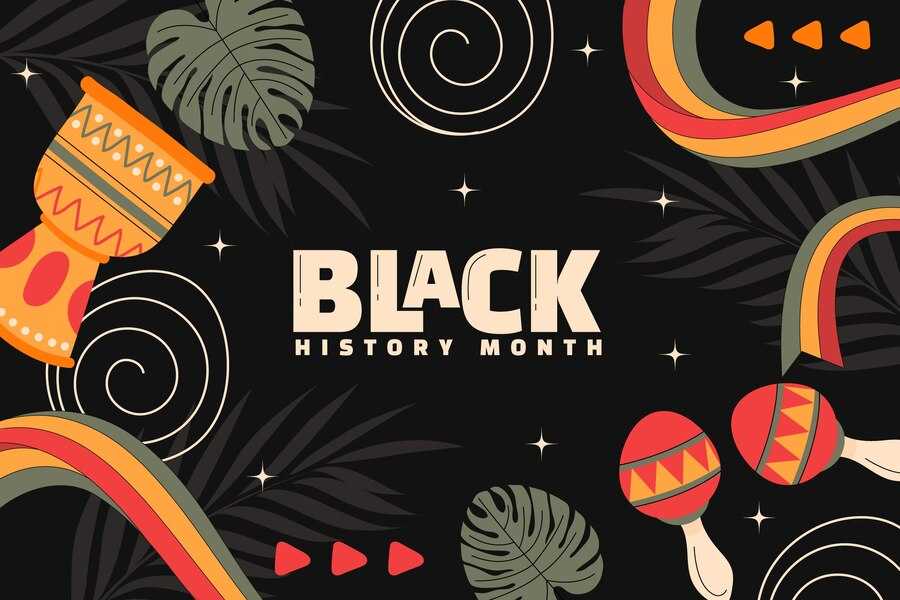Why is Black History Month important to African descendants? A question you could be seeking answers to, especially if you’re a US resident who missed out on history class. The month of February chronicles the achievements of black Americans and African descendants in the US.
Carter G. Woodson’s Association for the Study of African American Life and History (ASALH), founded with Jesse E. Moorland, was the first organization to research and celebrate the achievements of black people in American history.
Become an insider. Subscribe to our newsletter for more top trending stories like this!
Throughout his life, Carter G. Woodson dedicated himself to educating African Americans about the accomplishments of black descendants in the US.
Here are five reasons why Black History Month is important.
People Also Read: 11 Incredible Facts to Know About African Hair History
Why Is Black History Month Important?
Recognizes the Achievements of Black People
Often, the achievements of black Americans are neglected, or they have to work extra hard for recognition in various disciplines, such as
- Politics
- Entertainment
- History
- Culture
- Science
- Literature.
As such, Black History Month is an opportunity to appreciate, honor and recognize the accomplishments of black people, such as Martin Luther King Jr., Rosa Parks, Harriet Tubman, and Malcolm X.
Celebrate Notable Achievements
While the theme of Black History Month over the years covers various topics, this year’s African Americans and the Arts theme explores the impact of Black Americans on various arts like literature, painting, fashion, films, folklore, culinary arts, music, and language, among others.
Why Black History Month is important in celebration of women like Kathrine Dunham, who blended cultural dance from cultures including Africa. Moreover, women like Maggie Walker founded the first black-owned bank and opened the door for others to open such businesses and help black Americans save and protect their hard-earned money.
We could also mention James Weldon Johnson, the man who composed the black anthem. These are just a few personalities with historic achievements that need celebration. And Black History Month is the perfect time to highlight these people.
Educates on Black History
With many books and teachings on various cultures around the globe, black history isn’t taught as it ought to be. You’ll notice that some parts of black history are omitted or twisted to suit majority groups.
However, the celebration of Black History Month highlights the importance of teaching authentic black history to everyone interested, including black children and young adults.
Why is Black History Month important? It’s because it offers the opportunity to teach, show, and present black history from its source to the present.
Highlight Sources of Black History
People who are interested in reading about black history don’t know where to start most often. Black History Month is the season to find credible sources of black history from black authors, black museums, musical lyrics, movies, and podcasts on black history.
Unites Black People
While Black History Month brings together black people for a common good, the celebration goes beyond black people. It recognizes diversity, even among black people and individuals and groups from other races who join for the celebration.
At the industry or family level, employers and co-workers unite to celebrate the notable achievements of black staff, while black families celebrate one another.
People Also Read: 12 Key George Washington Carver Inventions Beyond His Time
How Black History Month Has Impacted the Lives of African Descendants in the US
The impact of Black History Month on African Americans can’t be overemphasized. The circumstances leading to the Civil Rights War of 1955 chronicle the struggles of black Americans.
Rosa Parks
Black people were restricted from attending the same public schools as whites. They were also prevented from living in many of the same neighborhoods, or using the same public facilities as white people.
Moreover, black people were unable to vote due to their inability to pass voter literacy tests, and interracial marriage was denied.
Following the refusal of Rosa Parks to give up her rightful seat to a white man, including her arrest, there were protests by the black community. The protest, including the Montgomery Bus Boycott, lasted 381 days and was led by Civil Rights Leader and minister, Baptist minister Martin Luther King Jr.
The Supreme Court would go on to rule in favor of black Americans, positioning segregated seating as unconstitutional.
These scenarios impacted the beginning of freedom for African descendants in the US.
The Little Rock Nine
Following the Supreme Court ruling on segregation in public schools and buses, Central High School in Little Rock opened its door to back students. A group of nine black students were admitted, but some white people were not happy about the progress and sought violent threads and protests to get the black students out of the school.
Also called the Little Rock Nine, the black students were later taken from the school for their safety.
Amid an escalating crisis, President Dwight D. Eisenhower intervened and ordered federal troops to protect the Little Rock Nine in and out of Central High School. Despite this, the students continued to face harassment and prejudice from white mobs.
As a result, both black and white Americans protested, bringing to light the issue of desegregation.
The Civil Rights Act
It was due to the Civil Rights Act of 1957 that black Americans were given the right to vote without any discrimination. It was initially difficult for black Americans in many southern states to vote due to required voting tests that were confusing, misleading, and nearly impossible to pass.
In 1957, President Eisenhower signed the Civil Rights Act into law on September 9, marking the first major civil rights legislation since Reconstruction. The law allows federal prosecution to prevent anyone from voting. It also created a commission to investigate voter fraud.
Father of Black History Month
Dr. Carter G. Woodson was a Harvard University scholar who dedicated his life to researching, documenting, and celebrating the contributions of black people. His enthusiasm led to the creation of Black History Month in 1976, which is marked every February.
Dr. Woodson was the second black person to receive a Ph.D. from Harvard in 1912.
During his early life, he worked in the coal mines before he started high school at the age of 20, working with formerly enslaved men. His co-workers were Civil War veterans who were illiterate, men relying on Woodson to read to them in the evenings.
It was in those experiences that Woodson came to learn black people carried important knowledge from their lived experiences. He reasoned that it was important to share and preserve the histories of Black people. In 1915, he created the Association for the Study of Negro Life and History while working as a teacher during Jim Crow. Dr. Woodson would go on to become the man referred to as the “father of black history.”
Become an insider. Subscribe to our newsletter for more top trending stories like this!
Evolution of Black History Month
Black Americans first observed black history in February 1926. Subsequently, the second week of February was set aside for this celebration, which coincided with the birthdays of abolitionist Frederick Douglass and President Abraham Lincoln. In 1976, the week was expanded to Black History Month.
Woodson preferred to celebrate black history in February for reasons of tradition and reform. Abraham Lincoln and Frederick Douglass, whose birthdays are the 12th and the 14th, respectively.
Lincoln, whose birthday falls on February 12th, was assassinated in 1865. The black community, along with other Republicans, had been celebrating the fallen president’s birthday since. Moreover, black people have been celebrating abolitionist Frederick Douglass since the 1890s.
Thus, Woodson chose the celebration of black history around significant dates in the black community.
The observation, which was called Negro History Week, included teaching black history in schools and fusing African consciousness.
Modern Celebrations And Events
Woodson believed the recognition of black people should go beyond two men. He was focused on celebrating numerous heroes and heroines in the black community who have impacted human civilization.
As in the 1940s, people were observing black history throughout February each year until it reached a dramatic impact in 1960.
Today, Black History Month is celebrated throughout February annually and in October to recognized various individual contributions to the growth and progress of black people.
Accomplishments of Black Americans Worth Celebrating
Richard Allen
Richard Allen was a minister, educator, and writer. He was a Philadelphia native who founded the African Methodist Episcopal Church, the first independent Black denomination in the United States.
After he bought his freedom from slavery, he fellowshipped with St. George’s Church. However, seating restrictions placed blacks in the gallery, so he left to form his church.
He converted an old blacksmith shop into the nation’s first African American church in 1787.
Arthur Ashe
Ashe was a tennis player whose resume included three Grand Slam titles and the title of the first black player selected to the United States Davis Cup team.
He was the only black man to win the singles title at Wimbledon, the US Open, and the Australian Open. Ashe suffered a heart attack in 1979 while holding a tennis clinic in New York.
He received support for his condition due to his status. In 1992, Ashe was diagnosed with HIV. After various investigations, he and his doctors concluded he contracted the virus from blood transfusions he received during his second heart surgery.
Ashe founded the Arthur Ashe Foundation for the Defeat of AIDS after disclosing his HIV status to the public. The foundation promotes safe sex education and works to increase public awareness of the disease. He received the Presidential Medal of Freedom posthumously from President Bill Clinton on June 20, 1993.
Ruby Bridges
Ruby has been a civil rights activist since 1954. She embarked on a historic walk to school at age six as the first African American student to integrate the all-white William Frantz Elementary School in Louisiana.
Ruby would eat lunch alone and sometimes play with her teacher at break time. Bridges never missed a day of school, although she faced protests from white parents.
To spread understanding and bring about change through education, she founded the Ruby Bridges Foundation in 1999. In 2000, she was made an honorary deputy marshal in a ceremony in Washington, DC.
Facts About Black History Month You Should Know
- Carter G. Woodson is recognized as the “Father of Black History Month.”
- In 1926, Carter G. Woodson started celebrating “Negro History Week” to observe the hard work of African Americans in American society.
- Since 1976, every U.S. president has officially designated the month of February as Black History Month.
- The second week in February was chosen because it included the birthdays of Abraham Lincoln on February 12 and Frederick Douglass on February 14.
- Frederick Douglass escaped slavery. On August 10, 1863, Abraham Lincoln met with Frederick Douglass in the White House. His visit was unannounced. Lincoln came to value Douglass’s perspective and candor.
- It is celebrated in Canada in February. It is celebrated in Ireland and the United Kingdom (In October)
How Can You Honor Black History Month?
Support Black Businesses
In light of Black History Month, you may be wondering how you can support or honor the celebration. One of the conscious efforts you can make is to support black businesses. There are countless black businesses in skincare with products for black skin and hair.
You’ll also find businesses in culinary arts, clothing, and black empowerment.
When you can, support them by patronising or recommending these businesses to your loved ones, friends, and family.
Promote Black Talents
You can also honor Black History Month by promoting black talent. Be it music, art, or the creative industry, if you find a black person, support their work to help them grow.
Explore Black Culture
Black culture includes the collective way of life of black people scattered across the globe. It goes beyond music to fashion, food, dance, language, spirituality, and traditions both outside and at home.
You can explore these cultures to learn about their relevance and educate others.
Share the Story of Black People
Now that you know the importance of Black History Month to African descendants, you can take the lead and share the story. You can also educate others about why History Month is important to black Americans.
If you have more queries regarding why Black History Month is celebrated, you can read more about black history on Spotcovery.
Interested in watching the full article video? See below. Subscribe to our YouTube channel for more original, inspiring videos on the black experiences.
Nearly 80% of consumers visit directories with reviews to find a local business. List your business for free in our exclusive Spotcovery Black-Owned Business Directory.
Spotcovery offers unique and fresh daily content on Black culture, lifestyle, and experiences. We talk about everything black, black people, black-owned and black-owned businesses. We also deliver authentic and relevant content that will inform, inspire, and empower you! The future of black media is critical to today’s black experience! Our primary audience includes African Americans, Africans, Afro-Caribbean, and people of African heritage. Black culture is for the culture!
Become an insider. Subscribe to our newsletter for more top trending stories like this!





